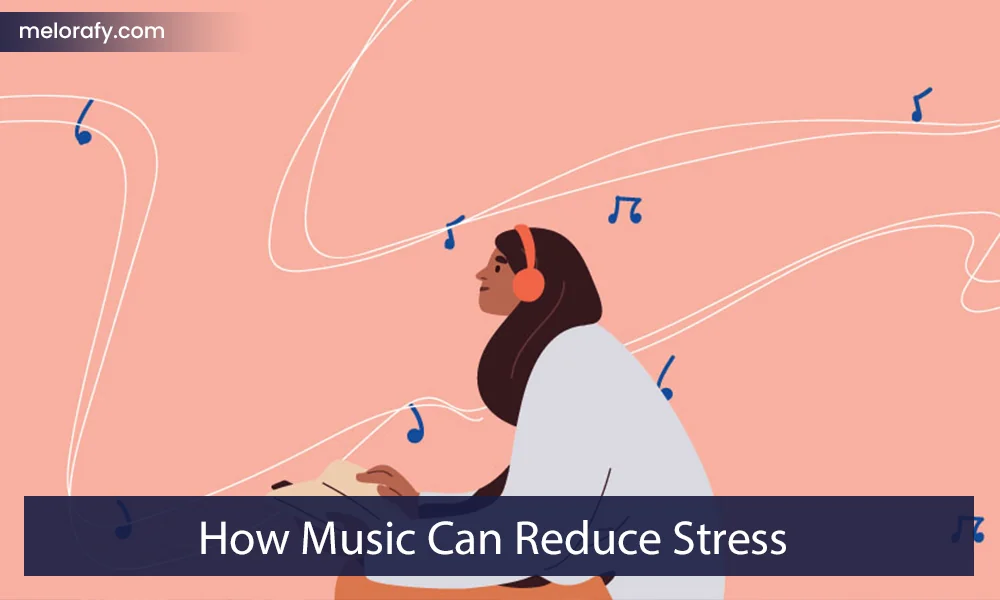
How Music Can Reduce Stress
In the fast-paced world we live in, stress has become a common companion in our daily lives. Whether it’s due to work pressures, personal issues, or the constant bombardment of information from social media, finding ways to reduce stress is more important than ever. One of the most accessible and effective solutions is something that has existed since the beginning of humanity: music. In this article from Melorafy, we’ll explore how music can reduce stress, backed by scientific research and simple techniques you can incorporate into your life.
The Science Behind Music and Stress Reduction
Research has consistently shown that music has a profound effect on the brain and body, influencing everything from mood to heart rate. According to a study published in the Journal of Music Therapy, music can significantly reduce emotional and physiological stress levels. The mechanism behind this involves music’s ability to engage the brain, triggering the release of stress-reducing hormones like dopamine and serotonin, while also lowering cortisol levels, a hormone commonly associated with stress.
Types of Music for Stress Relief
Not all music has the same effect on stress levels. While personal preference plays a significant role, certain types of music have been found to be more effective at promoting relaxation:
Classical Music:
Often considered the go-to for stress relief, classical music with its slow tempo and lack of lyrics can be particularly soothing.
Nature Sounds:
Although not technically music, sounds of nature like rain, waves, or birdsong can have a calming effect, similar to music.
Instrumental and Ambient Music:
Music without lyrics can help prevent the mind from becoming distracted, making it easier to relax.
![]()
How to Use Music for Stress Reduction
Incorporating music into your daily routine as a stress relief tool can be simple and effective. Here are a few ways to do so:
Create a Relaxing Playlist:
Compile a list of tracks that you find calming and play them during stressful times or as part of your evening routine to unwind.
Use Music as a Background:
While working or studying, play music softly in the background to help reduce feelings of stress without being too distracting.
Engage in Active Listening:
Set aside time to listen to music without doing anything else. Focus on the melodies, instruments, and how the music makes you feel.
Combine Music with Other Relaxation Techniques:
Music can enhance the effectiveness of other stress-reduction methods such as meditation, yoga, or deep breathing exercises.
Personalizing Your Music Selection:
It’s important to remember that the effectiveness of music as a stress reliever can vary from person to person. What works for one individual may not work for another. Experiment with different types of music and pay attention to how each one affects your mood and stress levels. Over time, you’ll be able to curate a selection of music that is most effective for you.
Maximizing the Benefits of Music for Stress Relief
To fully harness the power of music in combatting stress, consider the following additional tips and insights:
Personalize Your Music Experience
Explore Different Genres:
Don’t limit yourself to one type of music. Exploring a variety of genres can help you discover unexpected sources of relaxation and joy.
Pay Attention to How Music Affects You:
Notice how different songs or types of music influence your mood and stress levels. This awareness can help you make more effective choices in your music selection.
Integrating Music into Your Daily Life
Morning Routine:
Start your day with uplifting or calming music to set a positive tone for the day ahead.
During Commutes:
Listening to music while commuting can transform travel time into an opportunity for stress relief and personal time.
Exercise:
Upbeat music can motivate you during exercise, making the activity more enjoyable and less stressful.
![]()
The Role of Music in Mindfulness and Meditation
Music can also play a significant role in mindfulness and meditation practices. Here’s how:
Mindful Listening:
Engage in mindful listening by fully immersing yourself in the music. Pay attention to each note, the rhythm, and how the music flows. This practice can help you stay present and reduce stress.
Meditation Background:
Soft, ambient music or nature sounds can serve as a background for meditation, helping to create a tranquil environment that supports relaxation and focus.
The Community Aspect of Music
Music has the power to connect people, creating a sense of community and shared experience that can be incredibly comforting during stressful times:
Attend Live Music Events:
Whenever possible, attend concerts or live music events. The collective experience of enjoying music with others can amplify its stress-relieving effects.
Music Sharing:
Share music with friends or family members who also appreciate its therapeutic benefits. This can lead to discovering new music and deepening social connections.
![]()
The Therapeutic Use of Music
Music therapy is a recognized field that uses music to address emotional, cognitive, and social needs of individuals. While professional music therapy sessions can provide tailored support, the principles of music therapy can be applied in everyday life to manage stress, improve emotional well-being, and enhance quality of life.
Music is a powerful tool that can help reduce stress, improve mood, and promote overall well-being. By understanding the science behind how music affects our stress levels and incorporating it into our daily lives, we can tap into its healing properties. Remember, the key to using music for stress reduction is finding what works best for you and making it a part of your regular routine.
In today’s world, where stress is an inevitable part of life, having simple, accessible tools like music can make a significant difference in our mental health and quality of life. So next time you’re feeling overwhelmed, consider reaching for your headphones and letting the power of music carry your stress away.